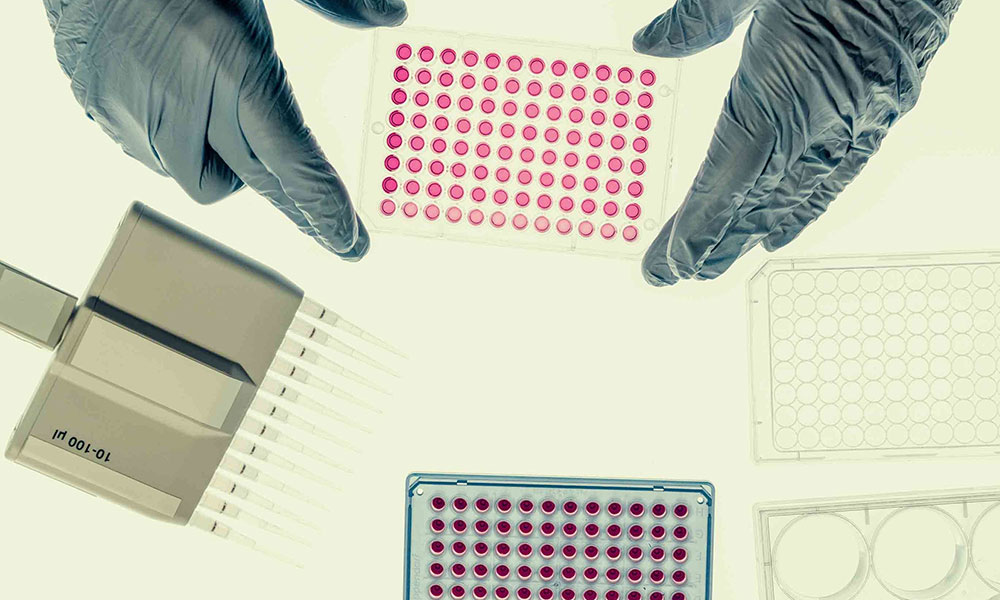Editor’s Note: This op-ed was originally published in STAT on May 7, 2025.
On April 15, President Trump issued an awaited executive order on drug pricing, kicking off a new frenzy among lobbyists and consultants. That frenzy has gone into overdrive with the latest proposal from the White House to examine cuts to Medicaid drug reimbursement, slashing prices to extortionate levels foreign governments demand.
Unlike Trump’s first term, the pharmaceutical industry is in far more peril than it has ever been in, and the biotech industry needs to ask itself an important question: Where does it fit in Trump’s vision for a new American Golden Age?
The opportunity is there to lay out a compelling case that biotech should sit beside space commercialization, energy production, and technology as partners in Trump’s grand ambitions. If biotech misses the moment, it will be just another industry staggering about the rubble of decaying factories, wondering how it lost out to China.
The U.S. leads the world in biotechnology innovation, generating more breakthroughs than any other nation. But our position is increasingly under threat. China’s biotech sector is backed by billions in government investment and a rapidly evolving research ecosystem.
Chinese biotech firms raised over $20.6 billion in 2023. While the U.S. raised more (nearly $56.8 billion), this private capital comparison tells only part of the story. China’s biotech sector is growing faster and attracting new funding and talent from around the world, while it grows its own deep bench of home-grown scientists.
The “Made in China 2025” initiative is a huge growth driver, prioritizing biotechnology investment and steering billions to new research labs and clinical trial facilities. It projects clarity of vision and confidence in China’s ability to steal the leadership role from the United States.
In the U.S., the industry faces a skeptical HHS Secretary. Robert F. Kennedy Jr.’s confirmation and messaging tapped into a reservoir of anger and resentment at an established public health order that is capturing far more wealth than is commensurate with health gains provided.
The biotech industry’s public policy ambitions have faded since its heyday; its goals pale in comparison to the breathtaking ambitions of tech, space and energy. This can be seen clearly in the absence of any biotech CEOs at Trump’s inauguration and the scant representation of industry veterans in the new administration.
Bold action is needed to ensure our biotech sector continues to produce miracle breakthroughs and reinforces our undisputed leadership in medical science.
What is clearly lacking right now, and what it is incumbent on industry itself to develop, is an exciting, compelling vision for America’s continued dominance in medical innovation. The energy sector’s vision is compelling: cheap abundant energy for the American people and American businesses. Elon Musk’s vision for space exploration? Humanity as an interplanetary species and life on Earth enhanced by commercial activity in the heavens. The tech sector offers artificial intelligence freeing us from mundane tasks, enhancing productivity and growth. What is the biotech promise?
Making that vision a reality will, of course, require changes to regulations and reimbursement just as the tech, space, and energy sectors are meeting daily with Trump’s team to request reforms. But now is the time for the biotechnology sector to ask for big changes to the Food and Drug Administration, National Institutes of Health, reimbursement, intellectual property and tax rules.
Artificial intelligence could sift through reams of data without sleep or coffee breaks to assist reviewers in analyzing trial data rapidly, allowing for new medicines to be approved much more quickly. Could it be shortened from a decade to 10 months? Could safety be determined not by bureaucrats but in real time with wearable tech and continuous monitoring of electronic health records? Should a new blue-sky FDA be established, built somewhere in middle America — say Oklahoma —with outstanding scientists to reimagine drug regulation, transcending the old way of doing things?
Medicare Part D is dying from Biden’s Inflation Reduction Act changes. A new way of getting seniors the drugs they depend on is desperately needed. Meanwhile, many Americans can’t afford their drugs, and businesses struggle with employee costs while drug companies navigate a congressionally designed reimbursement system that might as well have been whiteboarded in a psychiatric ward for the criminally insane.
But industry can’t expect to get what they want without offering reciprocity. If it hopes to gain trust, much less favor, from the administration and steer them away from the outright hostility of the past four years, biotech has to be part of the MAHA revolution, rather than an impediment. It should start by partnering with Jay Bhattacharya’s NIH — supporting it financially if necessary — to shape a new research agenda unencumbered by ossified methods and group think.
The industry should back Trump’s efforts to reduce strategic risk and promote domestic production by onshoring drug manufacturing capacity, partnering with U.S. Trade Representative to stop wealthy countries from ripping off the United States, and standing with Trump and the FDA as they shut the door on Chinese drugs. Aside from geostrategic considerations, why would we allow active ingredients for drugs from China to be used by Americans when our FDA is not permitted to conduct routine inspections of facilities?
Additionally, if the industry hopes to avoid the wholesale importation of Europe’s socialistic price setting via international reference pricing policies that are being considered, it must take bold action now. For too long the industry has gone along as Europe set prices on drugs that shifted the burden of R&D funding to American consumers. American companies should demand Europe pay more, perhaps setting a floor of 85% of the average sales price in the U.S.
Trump aims to be the most pivotal American president in a hundred years, and he is eager for bold proposals. Absent big ideas and big asks, the biotech industry will miss out while China takes the global lead.
Joseph Grogan is a visiting senior scholar at the USC Schaeffer Institute for Public Policy and Government Service. He served as assistant to President Trump and director of the Domestic Policy Council 2019-2020.




